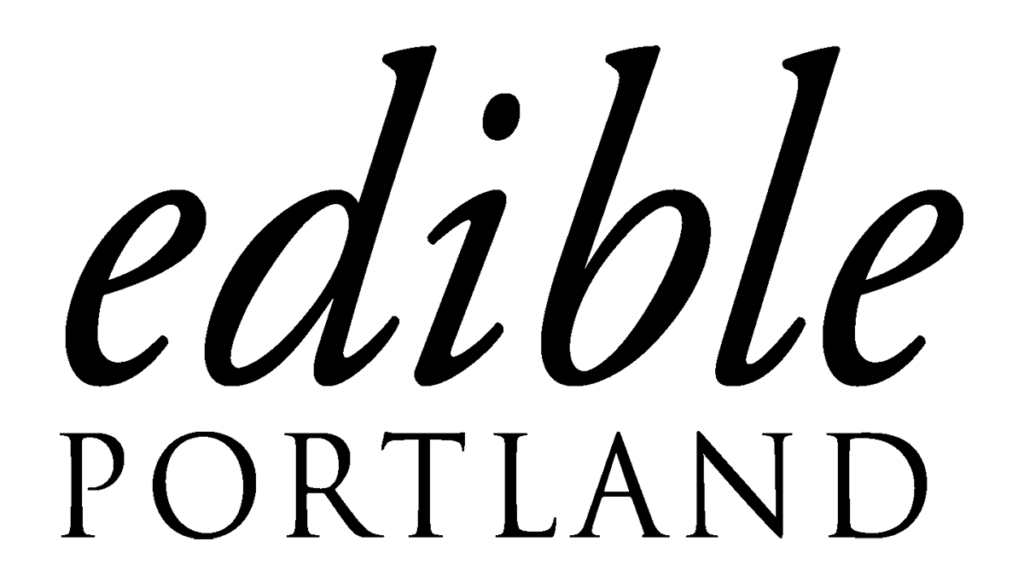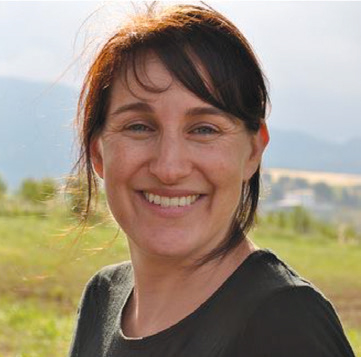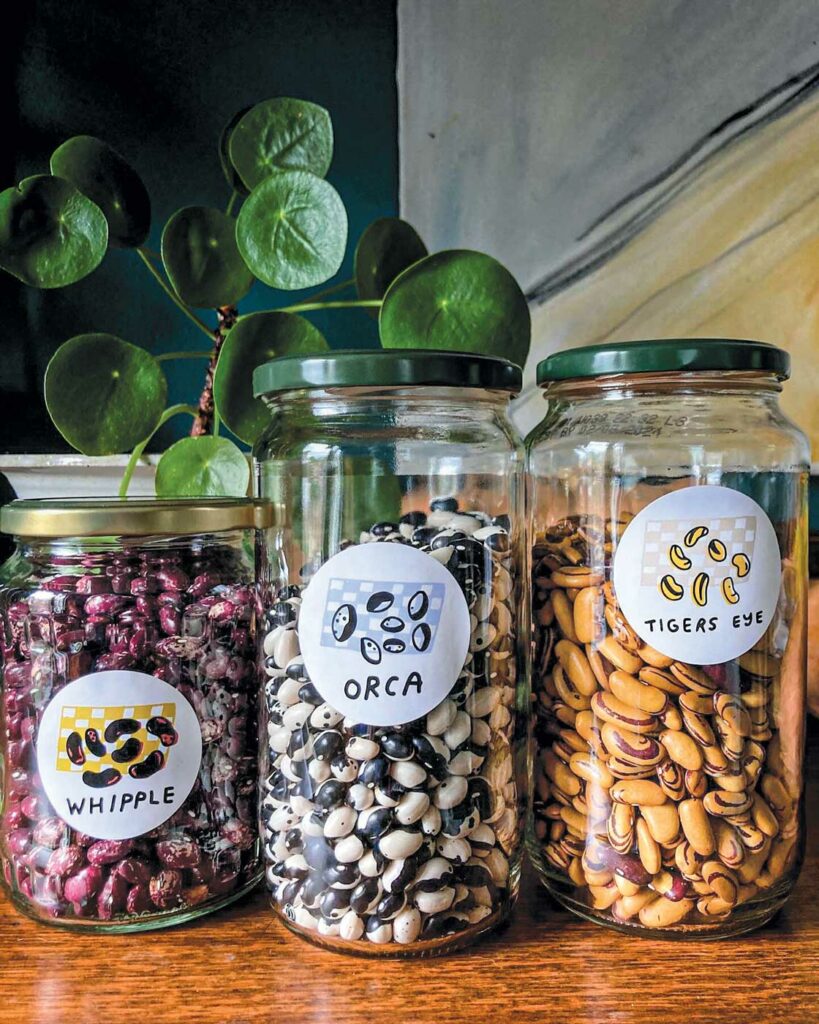
On a Sunday morning in late Fall, I arrive at a gathering. It’s the first day of the fourth season of the La Merenda Bean CSA. As I enter the house from the brisk of early autumn, the warmth of a few familiar faces and some new people greet me. There’s someone I met at one of last year’s pick-ups, and she’s sitting in the corner pouring over a book of recipes, presumably dreaming about what she’ll make with this year’s bean haul. I pour myself a cup of coffee, grab a plate of homemade breakfast treats, and wait my turn to have my beans measured out like precious gems on a jewel scale.
La Merenda farm is the dream of Katie Gourley and David Oberstein, who work at other farms and farmers markets in the Portland area. Neither comes from a farming background, but both have found their way to it through their passion for creating community through better eating. The name La Merenda is a nod to an essay by food writer Patience Gray about the importance of slowing down to share food, which inspired their project. David started working on a farm in New Jersey when he was 13. He eventually became a farm educator, teaching kids about soil health and where our food comes from. In 2016, he moved to Portland and took a job at 47th Avenue Farm, where he was introduced to bean farming as part of their winter rotation crops.
Katie was in graduate school in Chicago for a degree in city planning. She circuitously found her way to a commitment to seed saving when she took a job at the largest farmer’s market in the city. In high school, she had worked as a pastry chef. Still, this new job got her thinking more directly about food sovereignty and protecting biodiversity, which she carried back to an Oregon baking job after college, and that’s when she started to pay more attention to the seed stock of the various flours she was baking with. It was perfect serendipity when Katie and David met at a local farming event. They immediately hit it off and talked that day about their love of pantry staples like flour and beans and how paying attention to sourcing them could bring sustainability to simple, everyday food. They also marveled at how beans provide protein, which is a rarity for food from the ground. After that first meeting, they kept the conversation going. They decided to start La Merenda as a side project to their other farm work within the year.
“We couldn’t have done it without Laura Masterson,” says Katie. “Yeah,” David agrees, “Laura Masterson of 47th Avenue Farm was integral for us. She was interested in giving back to the farmers who had worked for her as a thank you for all the labor and dedication.” 47th Avenue Farms provided land and infrastructure for La Merenda to start their project within an existing farming system. Katie and David then got to work brainstorming ways to offer goods and a community event that would instill a love for seeds and sustainability. They wanted an alternative distribution model that kept their participants involved with their food.
Even though dry beans are a crop that farmers can distribute, they decided to make the whole affair a celebration by giving people a place to go for their first share in November and scattering the rest of the monthly meet-ups into the winter so that people taking part in their CSA had a reason to gather in the dreary parts of the year while they collect their bags of little gemstone-colored beans, a mid-winter ode to local eating.
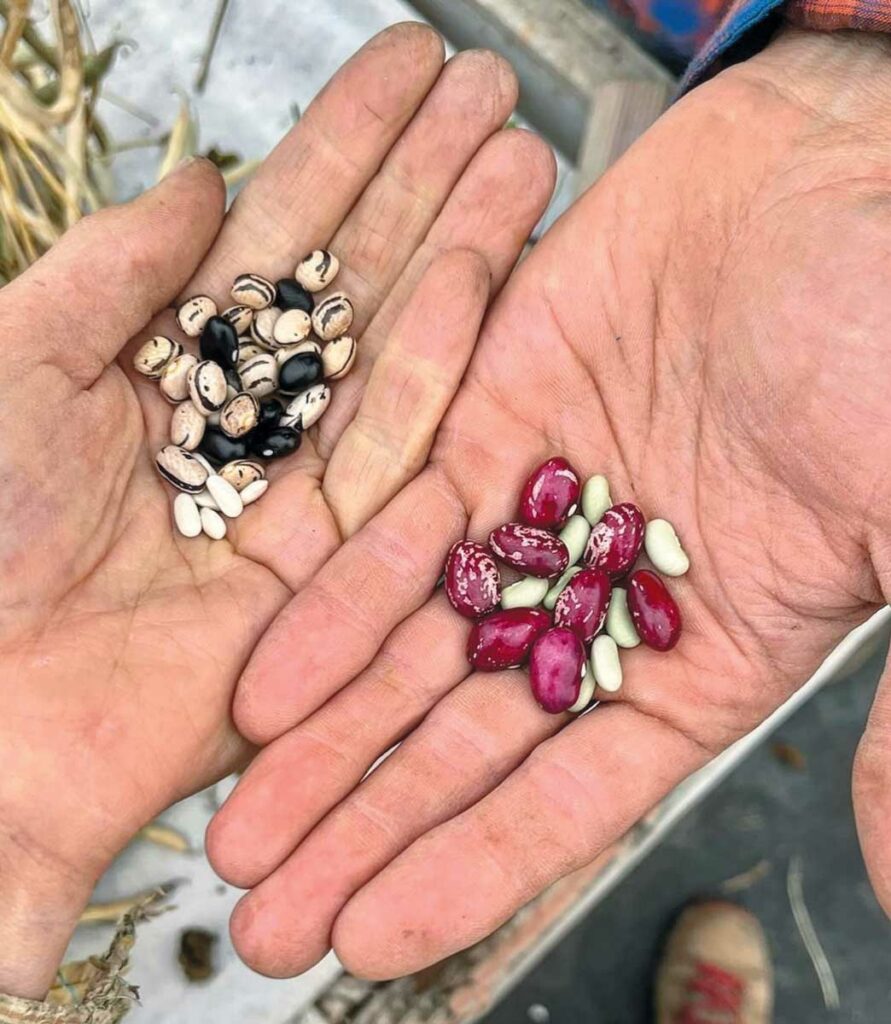
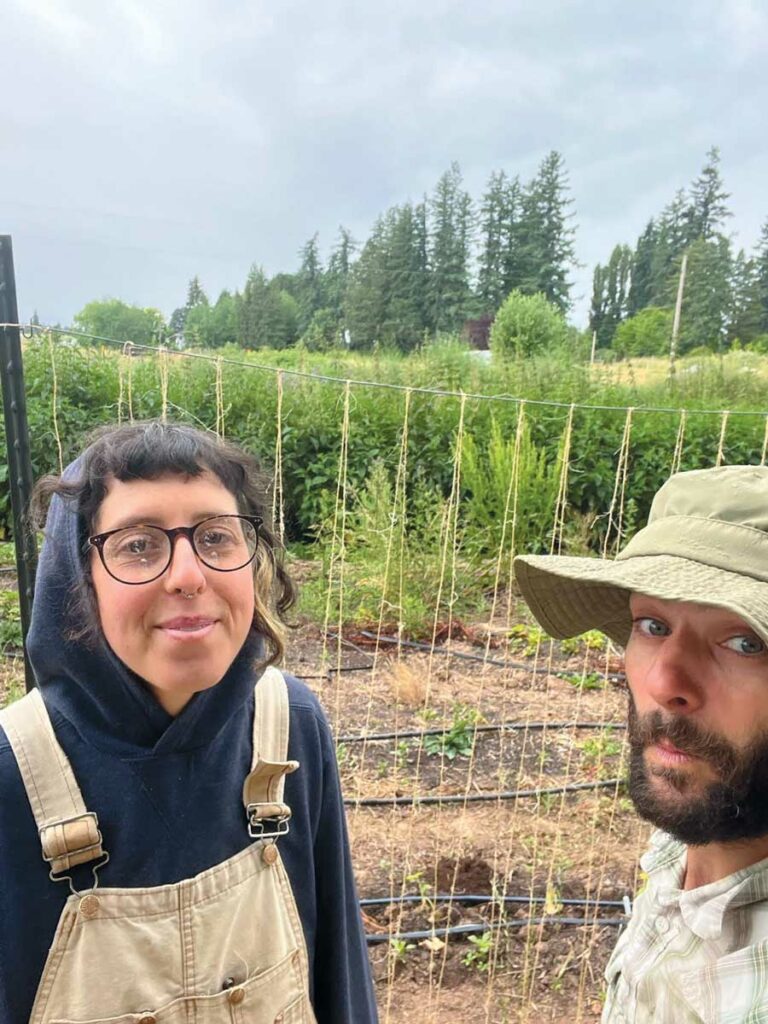
As I wait my turn at this first pick-up of the season, I overhear two people talking about a show coming to town. I’m reminded of how good it feels to get out and do things in person. I joined the conversation, and we chatted about some quince they had seen at a local market. I have two new things on my to-do list for these wet, cold days.
David is nearby, measuring beans into the jars brought for the occasion. Each is vibrantly colored and natural. “Beanie Babies, that’s what we like to call them,” David says as he hands a woman her jar and takes one of mine.
As if the gatherings were not hospitable enough, Katie and David often include little add-ins like hand-smoked chipotles they prepared from their summer farming to liven up a pot of beans. Each season’s share also comes with an original Bean Zine, chock full of recipes and stories about the varieties they grow. It includes a bean crossword puzzle, bean-focused poetry, and a “slow beans manifesto.”
Their dedication to the community is evident within and without. They invite participants to sort beans with them, which they do by hand.
“We enjoy the spiritual connection to the sorting process,” says Katie. “When the beans leave our farm and go into someone’s hands, we’ve touched every single bean.” Instead of deeming this task tedious, they make it a meditation we can all do together for those who desire to. The split or bruised beans go into a pile saved for the last gathering of each season, where they get used for a miso-making party. They gather everyone in a park to cook up the last of that year’s beans, then add local koji and dip into the tactile pleasure of mushing it all by hand before divvying some up into little jars to take home. The rest goes with Katie and David to be tended by them while fermenting into a kick-off bonus for next year’s CSA.
Katie and David are the future of farming. Their values are in the spotlight, and their passion is always in view. They incorporate elements of economic solidarity, and joining their CSA means joyfully connecting to the food we eat while learning more about our systems.
Contact @lamerendafarm or lamerendafarm@gmail.com to get the Bean Zean or to be put on the waiting list for 2025.
Photos courtesy of La Merenda Farm
